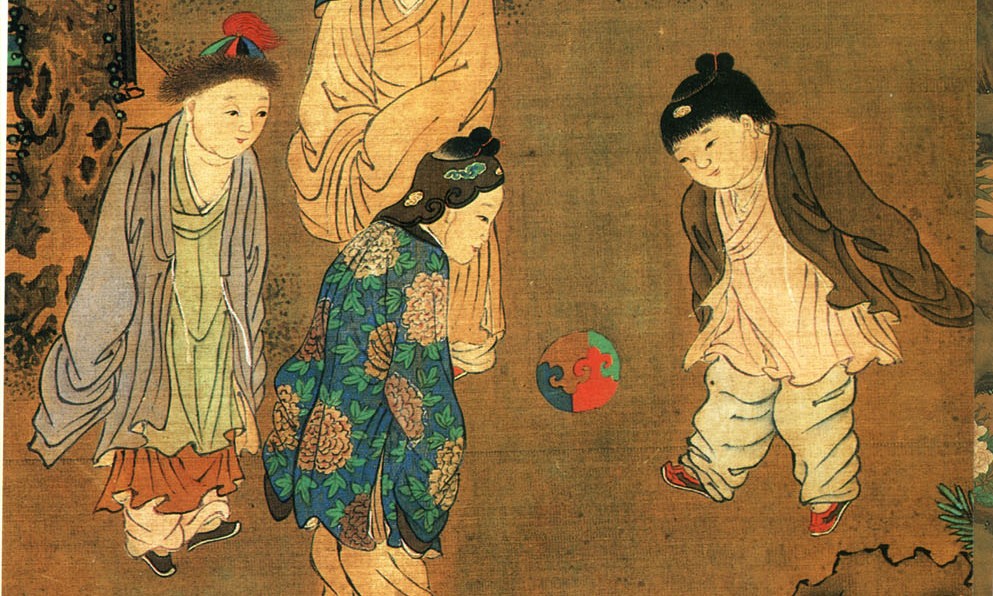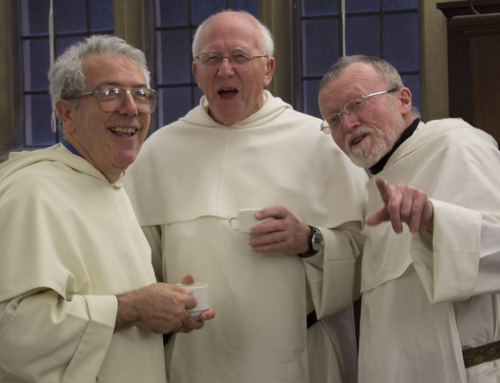In certain cultural settings, marriage between a man and a woman who raise their children together is not the norm. Instead, it would be envied as a privilege of the lucky. Our missionary priests who have served in Africa can attest to the discontentment, jealousy, and abuse that often are found in a traditional polygamous family. On the opposite end of the spectrum, commitment-fearing Americans find themselves experiencing similar feelings of suspicion and angst among their intimate relations. People desire a secure and stable family, even if they deem it unrealistic. Ultimately, we all share the wish for freedom in a family.
Enter Jesus.
The Catholic vision of marriage and the family includes much more than a set of rules which merely protect individual and societal stability. These rules are meant also to be the locus for true freedom. That is, men and women receive the chance to flourish by responding to a divine call from God himself. These two aspects of “rules” and “flourishing” need some explanation before we can understand the freedom promised by the Catholic view as the answer to our deepest hopes.
First, rules. My college professor, a passionate fan of European soccer, drew a helpful analogy. Everyone, from David Beckham to myself, started playing soccer by learning the rules. To understand the field’s boundaries, how to score, and what the whistle means are all essential if one is to play “real” soccer. Once these are memorized and “ingrained,” they become unquestioned habits and second-nature. Rules for a game can come from different sources, and sometimes more rules can be added in order to perfect the game. Likewise, transposing the analogy, the Church inherited some of its rules of living from Judaism and the Greek and Roman wisdom traditions. Rules about proper worship, reverence toward one’s parents, sexual mores (like monogamy), and respect for life were important guides. The Church recognized these standards to be the result of divine revelation and a multi-generational effort to make life more livable. Hence, moral obligations like those found in the Ten Commandments were respected as reliable rules that made the game of life intelligible and “playable.”
Second, human flourishing. In this respect, the Jewish and Greco-Roman visions, however excellent, were incomplete and sometimes even incorrect. And so the Catholic religion was instituted when God’s own Son brought a more perfect “game” to the “stadium” of nations. Jesus alludes to this in his conversation with a rich young man. The youth asked, “Good teacher, what must I do to inherit eternal life?” Jesus answered with a run-through of the Commandments. But his interrogator was unappeased. St. Mark records the Teacher’s further revelation: “Jesus, looking at him, loved him and said to him, “You are lacking in one thing. Go, sell what you have, and give to the poor and you will have treasure in heaven; then come, follow me” (Mk 10:21). Jesus points the wide-eyed young man to something at the heart of his preaching: surpassing a commandment-centered morality for an ethic which respects the Law but aims for a life of virtue that is happy because it is powered by the grace of the Holy Spirit. Dominican Father Servais Pinckaers directs our attention to the Sermon on the Mount for this invitation of Christ (see Mt 5-7). Thus looking at the entirety of his teaching, Jesus unravels a set of life principles which seem almost “pie in the sky”: the teaching on purity of heart, the indissolubility of marriage, the need to allow the youngest children access to God’s presence and influence, etc. Is all this possible? We can supply Jesus’s response from the story of the young man: “For human beings it is impossible, but not for God. All things are possible for God” (Mk 10:27). In the Beatitudes, Jesus gives everyone who will listen not just a set of rules, but a staggering plan for permanent happiness, flourishing, and (back to soccer terms) a strategy for the best playing of your life!
A team’s finest game is prefaced by much sweat, pain, and concentration. Yet, after countless drills and scrimmages, the basic skills and plays are deeply embedded in one’s muscle-memory. Now, with a common goal and the willingness to sacrifice one’s body, the group is ready for action. Rules and hard work result in spontaneity, delight, and the glory of victory. The game has reached its peak, and the level of “inspired soccer playing” has emerged as the goal of all else in the sport.
This is like the Church’s vision for marriage and family life. Rules and boundaries have been handed down through a combination of Sacred Scripture, perennial Christian teaching and practice, and a web of cultural traditions. Hopefully these have become second-nature. Yet this is the framework and not the high point of the game! Rules, some flexible and some absolutely necessary, are for the sake of something higher which must be experienced in order to make sense of the whole vision. We know that docility is necessary to basic rules like regular Sunday worship, spousal fidelity, openness to new life, the intentional education of children, and continual dialogue and forgiveness. Sacrifice, the willingness to uphold one’s priorities and even to suffer for them, is necessary. And we know that only from here arrive those relished moments of adventure and creativity. These are the moments of being surprised by one another’s gifts—child, wife, and husband. This is delighting in the “game” of life. And with God’s presence in the family, these moments are not just lucky; they become natural.
The Catholic vision of marriage and family is a life given shape by rules and enlivened by the life of God coursing through one’s veins. If this vision is shared again in our homes, we may again find freedom in our families.
✠
Image: Su Hanchen, One Hundred Children in the Long Spring







